- Home
- Seanan McGuire
Middlegame Page 26
Middlegame Read online
Page 26
“What makes you think I won’t?”
“Dodger would be crushed.” The words are simple, small, and absolutely true. They represent the thing both men want most to avoid, and so they aren’t questioned, even as they change the shape of the conversation. Roger remains seated. Standing might seem like a challenge, even though he’s fairly sure Peter Cheswich is taller than he is. “She brought me home to meet her family because you’re important to her, and she wants us to get along.”
Peter’s eyes are steel. “What you did to her…”
“I saved her life, sir. That’s all I did.” Roger shakes his head. “I was in Cambridge when I called. I know you know that, because you’re a smart man, and you would have checked the university call logs as soon as the police got involved. You know the call came from Massachusetts.” From a payphone, no less. (It’s not there anymore. The last time Roger took the T into Boston, he’d passed Harvard Square and seen that the payphones, all of them, had been removed. He’d felt an obscure sense of loss, like something essential and hence eternal was inexplicably gone. Time marches on. Only the dead are left behind.)
Peter has known for years that Dodger’s wounds were self-inflicted; that the boy from Boston was a polite fiction. Still … “How did you know, if you weren’t there?”
“Because I was her best friend,” Roger says, and that’s true; that’s always been true. Even when they weren’t in contact, even when he had other people to fill the void her absence left, he has always, always been her best friend. She was happier to live with the hole than she would have been trying to plug it with someone who wasn’t right, and sometimes he wishes he were that single-minded, or that strong. “I knew something was wrong. Whether you want to believe me or not, it’s the truth. I’d never hurt her. If anything, I’d hurt myself trying to keep her safe.”
Peter hesitates. The things he’s wanted to say for five years are difficult to swallow. The evidence of his eyes is harder to deny. “She seems … happy.”
“We’ve been having a good time.”
Peter’s expression changes again, making it clear how he’s interpreting that. It’s all Roger can do not to laugh out loud.
“Nothing like that, I promise,” he says. “We’ve mostly been arguing about the language used to describe math. She’s pretty vehement when it comes to getting things right.”
“That’s my girl,” says Peter, and he’s smiling, and maybe things are going to be okay.
* * *
When Erin emerges from the bathroom—canary yellow and cream, with pictures of whales on the walls and scented seashells on the windowsill; it couldn’t scream “Californian” any louder if it tried—and lets Smita push past her, she finds Dodger in the hall. She stops, raising an eyebrow.
“Yes?” she asks.
“Do you think my dad’s going to kill Roger?” Dodger blurts the sentence out as a single breath, like she’s been holding it clasped between her teeth as long as she’s been waiting.
“Probably not,” says Erin. “I mean, I guess he could, but it would be hard to get rid of the body, and it would probably mean dinner would be served late. Best not to risk it.”
Dodger looks alarmed. That can be amusing—when Dodger blows her stack, she tends to do it in a huge, theatrical way, which is better entertainment than most of what’s on television. At the same time, Erin really does want to eat on time and isn’t interested in fomenting conflict today. There’s enough conflict to come. No need to start things before their time arrives.
“I’m sure it’s fine,” she says. “I know there was some stuff with a boy from Boston—don’t look so shocked, I know how to use a search engine, and there was no way I was moving in with you without looking you up—but I also know Roger wasn’t here when it happened. He and your dad will glare at each other and things will be fine. It’s patriarchal bullshit and we should hate it as feminists, but we should also find it endearing, because they’re so cute when they puff their feathers out and try to show off for one another.”
Dodger blinks before she asks, “Do you think my dad thinks I’m dating Roger?”
Privately, Erin doesn’t think anyone who watches the two of them together for more than thirty seconds could see them as anything other than adult siblings. “Why would he? Roger’s your brother, remember?”
The look of guilt on Dodger’s face is almost comic. “Um. About that…”
“It’s okay. I know the two of you were adopted. Your father doesn’t know, does he?”
“No,” says Dodger, shaking her head. “We haven’t had a chance to tell him.”
Erin smiles. “Won’t this be a fun dinner?”
Her smile endures until Smita emerges from the bathroom. Erin turns and heads for the back door, slowly enough to encourage Dodger to trail along behind her like a duckling following its mother. She doesn’t want to shake the girl more than she already has been. Fun as it is to see Dodger off-kilter and unsure of her next move, there’s such a thing as taking it too far. If she pushes Dodger past her limits, there’s a chance she’ll snap, and the consequences could be dire. The timeline can’t handle another reset this close on the heels of the last one. Worse, a timeline reset might result in Roger going to Boston, and that would be bad.
In the backyard, Roger is still stringing popcorn and cranberries, while Peter is back at the grill. Erin steps aside to let Dodger see, and watches the other girl sag in relief.
“Oh,” she says. “No blood.”
“See?” says Erin. “I told you. They just needed to sort things out. Come on.”
The three of them reclaim their seats. Roger doesn’t look up, but slides a cranberry onto the needle and says piously, “I’m not going to forget that the two of you took Dodger and left me alone. You may not understand the import of what you’ve done, but I assure you, you have made an enemy this day.”
“I shall make a note in my day planner,” says Smita. “I’m sure I’ll rue the day.”
“Isn’t it cute, how he thinks he knows how to sound scary?” asks Erin. She picks up a strip of construction paper. “Somebody give me some glue.”
“I thought you were terrifying,” says Dodger, passing a glue stick to Erin.
“Thank you,” says Roger. He glances up long enough to flash her a smile. “It’s all good. We just needed to talk a few things out. No one got punched, and I think he’s cool with me being here now. Or well, maybe he’s not cool, but he’s not asking me to leave, so I’ll take it.”
“Cool,” says Dodger, and smiles back, and for a while, the only sound is the rustle of construction paper, the snick of scissors, and the occasional soft curse when Roger jabs the needle into his finger instead of into the popcorn. It’s actually a surprise when the glass door slides open and Heather steps outside.
“All right, you lot,” she says. “Time to get decorating. Roger, you’re the tallest, and Dodger, you know where things go. Erin, Smita, can you help me with the dishes?”
“Of course, Mrs. Cheswich,” says Erin, suddenly all sugary politeness. She gets up and follows Heather inside, leaving the others to blink after her.
“That was terrifying,” says Dodger.
“That was my cue,” says Smita, and trots after Erin.
“I didn’t know Erin did ‘friendly,’” says Roger. He holds up his popcorn-and-cranberry garland. “Where do I hang this?”
“I’ll show you,” says Dodger, and stands. He follows.
The next few minutes are the sort of thing people never truly outgrow, even as they try to convince themselves that they’ve moved past childish things and don’t miss the simple rituals of their past. Dodger points and Roger hangs, paper chains and popcorn strings. Heather, Smita, and Erin move behind them, setting dishes on the table; plates and flatware at first, then moving on to serving trays, baskets of rolls, platters of corn. Absorbed as they are in the process of getting everything exactly right, Roger and Dodger don’t even seem to notice.
Peter walks over w
ith the turkey, holding the massive bird like an offering, and stops, blinking. Somehow, they’ve managed to string an elementary school’s worth of paper chains from the roof of the covered porch, their ends tangled festively around the support beams. Dodger is atop the stepladder, Roger holding her hips to steady her, as she ties the last of the garlands. There’s something about the scene that’s so profoundly, simply accurate that for a moment, he knows in his bones that both of them grew up in this house: that he’s been watching his daughter and her brother decorate for Thanksgiving since they were big enough to work a pair of safety scissors without cutting themselves.
The moment passes. Peter Cheswich says the only thing he can think of: “When were you two going to tell us you were related?”
Dodger jumps. It would end in disaster if not for Roger: his hands won’t let her fall, not even when she twists, grimacing apologetically, and says, “We’re not absolutely sure, Daddy. We still have to get tested. Smita’s going to do that when we get back to school.”
“That’s a formality,” says Peter. “You know it, or you wouldn’t have brought him home.”
“I’m not related to anyone here,” says Erin. “Neither is Smita.”
“You’re different,” says Peter. “We’ve had classmates before. Never for a major holiday, or even for a dinner, but it’s not like we kept Dodger locked in a tower. She’s never brought home a boy, and she’s definitely never brought home a boy who looks like her.”
“We don’t look that much alike,” protests Dodger.
“Yes, you do,” says Heather, stepping up next to her husband. “Maybe not if you’re used to looking at yourself in the mirror, but for the rest of us? You look so much alike that it hurts.”
Erin leans back in her seat, watching with interest to see how this plays out. They’re off-balance, both of them, rendered uncomfortable by scrutiny and parental attention. She can learn a lot from their reactions.
Part of her role is to watch them. Part of her role is to protect them. And part of her role is being prepared to take them down: finding their weaknesses, however small, and knowing how to exploit them. They’re fine in an academic setting, presenting a united front against whatever challenges the school can throw at them. Their early connection must have allowed them to survive their undergrad experience with a minimum of tears; based on the pairs that didn’t connect before high school, without the time they’d spent together as children, they would have been hopeless at the subjects that weren’t innately theirs. Dodger was never going to be a linguist, any more than Roger was going to be a mathematician, but they could cope, which was more than some of their fellows ever learned. They balance each other.
That doesn’t mean they’re equipped to face their parents—although if they must face a pair of parental figures, better hers than his. At least hers want what’s best for her, and not for the experiment.
Smita emerges from the kitchen. For the moment, she’s silent, observing; taking it in.
“Were you adopted?” Peter asks, looking at Roger.
There’s a wealth of information in that question. Roger unpacks it without thinking, finding the nuance, finding the things Peter wouldn’t be able to say without a few beers and a lot of time to dwell. First and foremost, however, is the thing that must be addressed before it becomes the elephant in the room: the question that defines everything.
“Yes, sir, I was,” says Roger. “Dodger and I have compared adoptions. We were born on the same day, both placed with sealed records. I’ve had no contact with my birth family, and honestly, I haven’t been tempted to go looking for it. I love my folks. It’s just, well…” He looks to Dodger and shrugs.
She picks up the thread. Still the better liar, even if she’s not as preternaturally convincing as he is; sometimes it’s not the words, it’s the way they’re used. “We met at chess camp. Remember?”
Heather’s eyes widen. “The pen pal you wanted us to go to Cambridge to meet. Dodger, honey, why didn’t you say anything?”
“Because I told her not to come,” says Roger. “I was a kid. I was scared. Here was this girl saying she thought we might have the same birth parents, and the kids at school used to make fun of me because I wasn’t wanted. But I was wanted. Being adopted meant I knew my parents loved me more than anything. They’d chosen me out of all the kids in the world. I was afraid if I saw Dodger again and she really was my sister, like she said, that things would change. Our birth parents would appear out of nowhere and take us away from the people who loved us.”
Erin says nothing. This isn’t her conversation, and he’s closer to the truth than he knows, whether by chance or because he harbors vague memories of other, older timelines where that exact thing had happened. If the cuckoos came together too early, they were separated. The pattern never varied. Its echoes still hang over them all.
“I thought if he was really my brother, like I’d thought he was, he’d love me too much to tell me to stay away,” says Dodger, picking up the thread of the lie with ease. They would have been terrifying if they had actually grown up together. They’re more than a little terrifying now. “So I didn’t talk about it. We met again when I did that chess tour, the one that went to Massachusetts. We lost touch after I … hurt myself.”
She looks down, cheeks burning red, as if the patio floor can absolve her of the sins of her past. She doesn’t say anything about lying when she allowed them to think that Roger had been the one to hold the knife; she doesn’t need to. The confession is in her silence.
Peter and Heather exchange a look. When they turn back to the trio, they’re both smiling, her sadly, him seeming somewhat strained.
“Thanksgiving is for family,” she says. “Let’s eat.”
* * *
That night, with Erin and Smita on the floor of Dodger’s room and Roger in the guest room, Heather turns toward her husband in the bed and asks, “Do you really think she just happened to turn around and stumble over her twin brother?”
The word “twin” has entered the conversation without fanfare. It makes too much sense to be omitted: they were born on the same day. They have the same eyes, the same underlying bone structure, the same tense, uncompromising posture. Dodger shows it in the tightly wound way she stands, the way she reacts to the slightest sound. Roger seems more relaxed, but he’s just as aware; he simply masks it better.
“It looks that way,” says Peter.
Heather shakes her head. “And then there’s the names. Thank God those poor children didn’t grow up together. Can you imagine?”
“I wonder if his parents got the same ‘you can’t change your child’s name’ rider on their adoption,” says Peter.
“Some people shouldn’t be allowed to name their own children.”
“No,” he agrees.
Heather is quiet for a time before she says, “I suppose I should feel tricked, like she snuck him past the borders to make sure we couldn’t push him away. But really, I’m relieved. She has a brother. She has someone her own age who understands the way her mind works. How can that be anything but good for her?”
“It can’t,” says Peter, and kisses his wife goodnight.
Down the hall, Dodger lies awake, staring at the slowly dimming constellations on her ceiling. The glow-in-the-dark paint still holds a charge, even after all these years; she can tell the time by the half-life of her artificial sky. She wants to talk to Roger. She wants to ask him what he thought of the meal, of her parents, of the overall situation. She can’t. Smita is asleep, but Erin is right there, close enough that she’d notice if Dodger started talking to herself.
We should have worked harder at that whole “silent communication” thing, she thinks, and counts the stars, and tries to sleep.
Erin listens as Dodger’s breathing levels out, turning deep and slow as the other girl sinks into unconsciousness. When she’s sure Dodger is well and truly gone she opens her eyes, brushing the hair out of her face with one hand, and counts silently to ten in
ancient Sumerian. There’s no movement from the mathematician. She’s not fully manifest yet; there will come a time when someone so much as thinking of numbers in her presence will catch the corner of her attention, risking her full regard. Erin won’t take risks like this then, assuming they’re still together, assuming they’re still alive.
Carefully, she sits up, watching for any signs of motion. When they don’t come, she stands, and pads toward the door.
The air in the house is still. Roger is asleep in his room, she’s sure; put them this close together and the cuckoos will either be continually on guard, sleeping in shifts, watching one another’s backs, or they’ll be utterly relaxed, synchronizing in ways even they haven’t started to figure out yet. Erin can’t wait to see the looks on their faces when they discover how deep their entanglement goes.
This is not a house built for war. Everything in it speaks of peace, of indolence; no one who thinks in terms of a battle coming would choose cream carpets, or pastel accents in their wallpaper. Erin pauses at a picture of the Cheswich family in front of Sleeping Beauty’s castle at Disney World. Dodger, who looks all of twelve years old, is wearing mouse ears and grinning the broad, bright grin of a child whose greatest trials have involved an imaginary friend who stopped talking to her and a series of math teachers who don’t understand. Her parents glow with love and satisfaction. It’s things like this that make these cuckoos so dangerous; there are bricks in their road to the Impossible City that are neither wind nor stardust but simple red stone, forged in the real world, where alchemy is a fantasy and immortality an impossibility.
“You made them too normal, and that’s where you fucked up,” she murmurs, touching the frame. Then she resumes walking, heading for the back door, and out into the green California evening.
Erin left the lab for New York City after Darren died, sent to a foster family as dedicated to the cause as the Middletons, to learn the things she’d need to know for her coming mission. Her “mother” taught her to wield civility like a weapon, to put on eyeliner and lipstick and a smile she didn’t mean, one sharp enough to slice through skin, bone, and social barriers alike. Her “father” taught her to break down a rifle, wipe it clean, and reassemble it in under a minute, putting her through the kind of hard, unrelenting drills that would have made a military academy proud. They’d been working for the glory of the cause, working for citizenship in the Impossible City, and they had made her the kind of weapon that could be used to change the world.

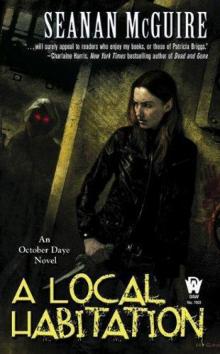 A Local Habitation
A Local Habitation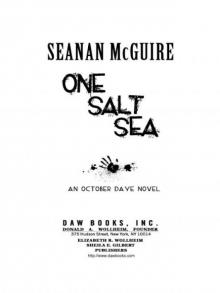 One Salt Sea
One Salt Sea Beneath the Sugar Sky
Beneath the Sugar Sky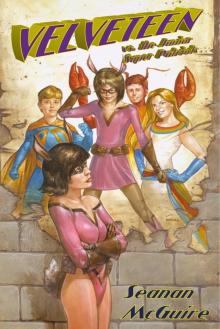 Velveteen vs. The Junior Super Patriots
Velveteen vs. The Junior Super Patriots The Girl in the Green Silk Gown
The Girl in the Green Silk Gown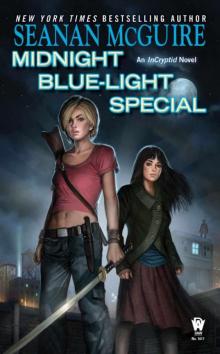 Midnight Blue-Light Special
Midnight Blue-Light Special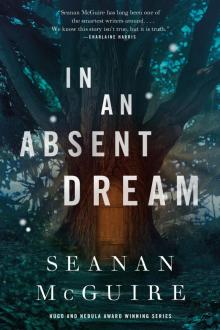 In an Absent Dream
In an Absent Dream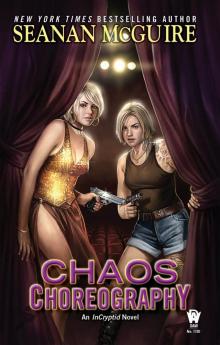 Chaos Choreography
Chaos Choreography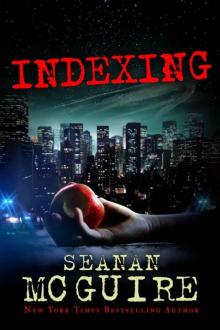 Indexing
Indexing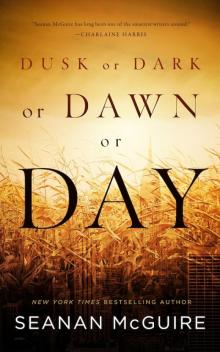 Dusk or Dark or Dawn or Day
Dusk or Dark or Dawn or Day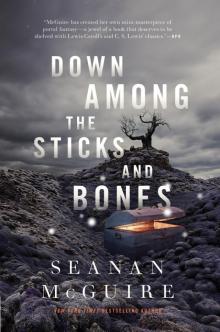 Down Among the Sticks and Bones
Down Among the Sticks and Bones The Razor's Edge
The Razor's Edge Midway Relics and Dying Breeds
Midway Relics and Dying Breeds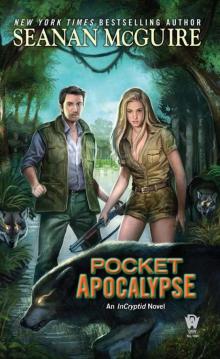 Pocket Apocalypse
Pocket Apocalypse The Brightest Fell
The Brightest Fell Discount Armageddon
Discount Armageddon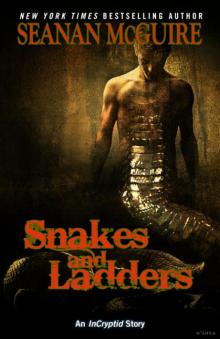 Snakes and Ladders
Snakes and Ladders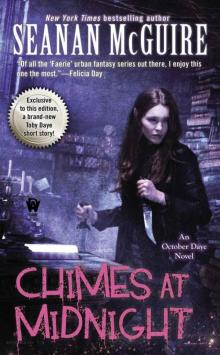 Chimes at Midnight
Chimes at Midnight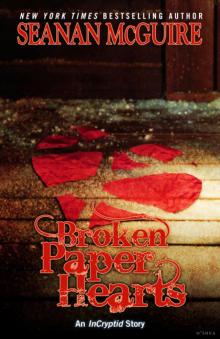 Broken Paper Hearts
Broken Paper Hearts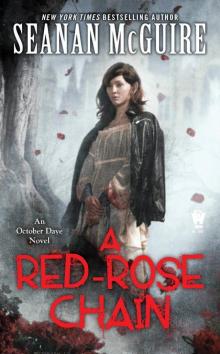 A Red-Rose Chain
A Red-Rose Chain Married in Green
Married in Green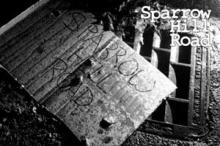 Sparrow Hill Road 2010 By Seanan
Sparrow Hill Road 2010 By Seanan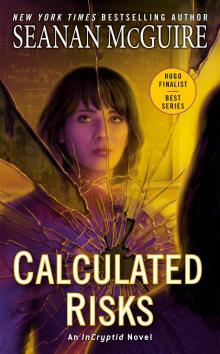 Calculated Risks
Calculated Risks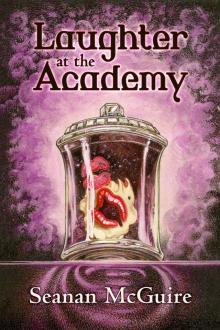 Laughter at the Academy
Laughter at the Academy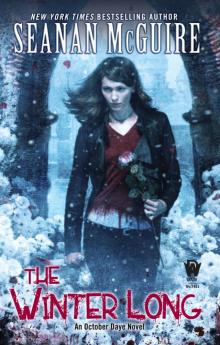 The Winter Long
The Winter Long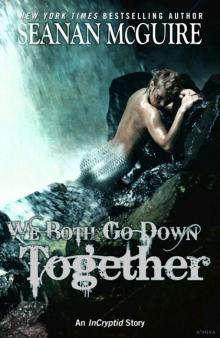 We Both Go Down Together
We Both Go Down Together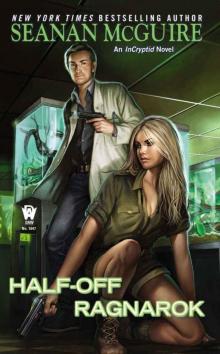 Half-Off Ragnarok
Half-Off Ragnarok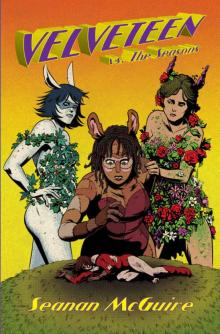 Velveteen vs. The Seasons
Velveteen vs. The Seasons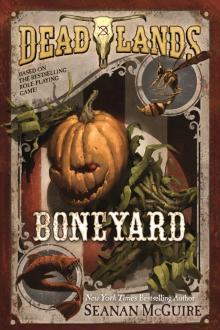 Boneyard
Boneyard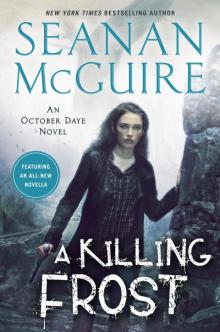 A Killing Frost
A Killing Frost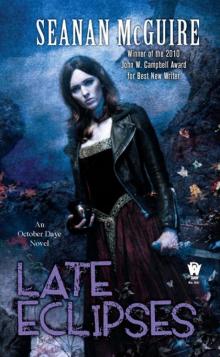 Late Eclipses
Late Eclipses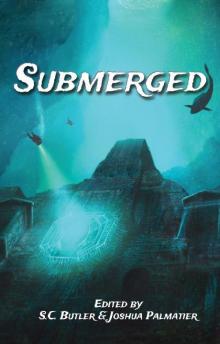 Submerged
Submerged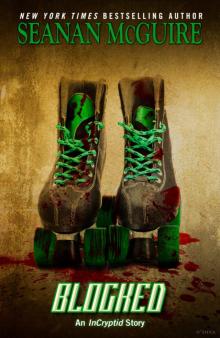 Blocked
Blocked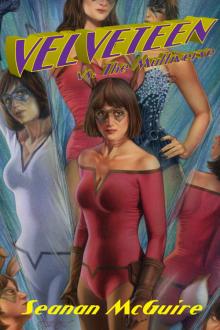 Velveteen vs. The Multiverse
Velveteen vs. The Multiverse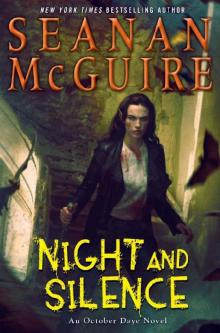 Night and Silence
Night and Silence The Unkindest Tide (October Daye)
The Unkindest Tide (October Daye)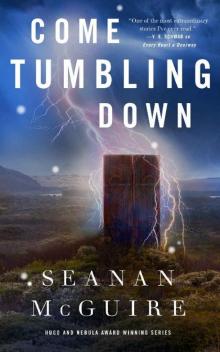 Come Tumbling Down (Wayward Children)
Come Tumbling Down (Wayward Children)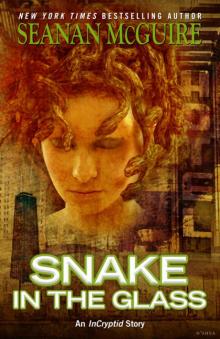 Snake in the Glass
Snake in the Glass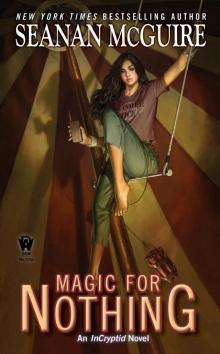 Magic for Nothing
Magic for Nothing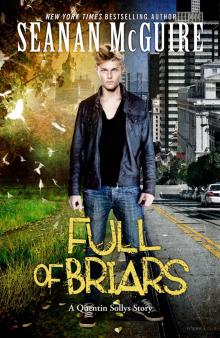 Full of Briars
Full of Briars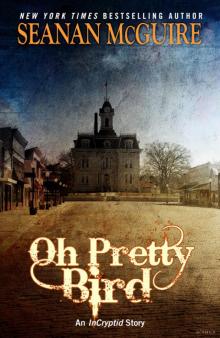 Oh Pretty Bird
Oh Pretty Bird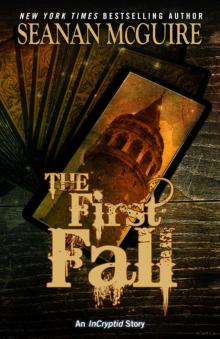 The First Fall
The First Fall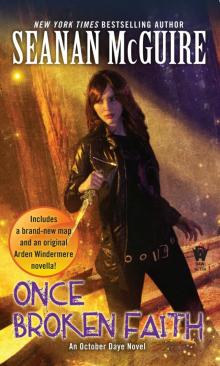 Once Broken Faith
Once Broken Faith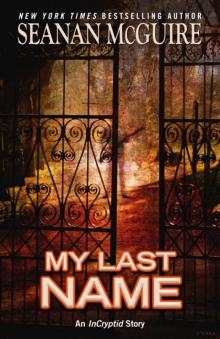 My Last Name
My Last Name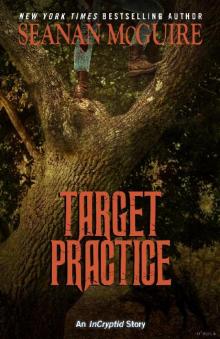 Target Practice
Target Practice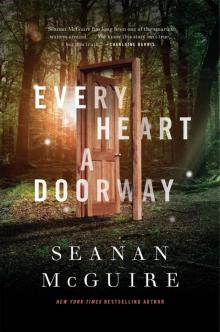 Wayward Children 01 - Every Heart a Doorway
Wayward Children 01 - Every Heart a Doorway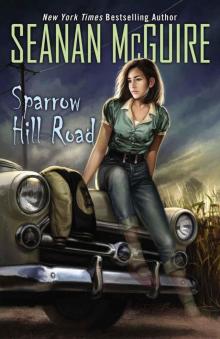 Sparrow Hill Road
Sparrow Hill Road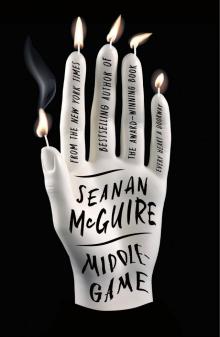 Middlegame
Middlegame Juice Like Wounds
Juice Like Wounds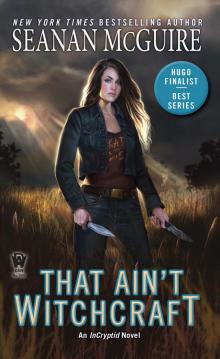 That Ain't Witchcraft
That Ain't Witchcraft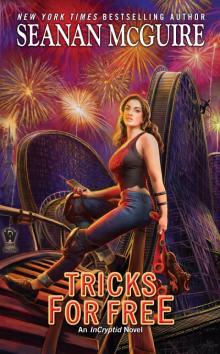 Tricks for Free
Tricks for Free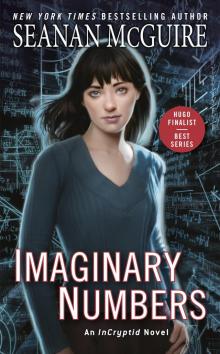 Imaginary Numbers
Imaginary Numbers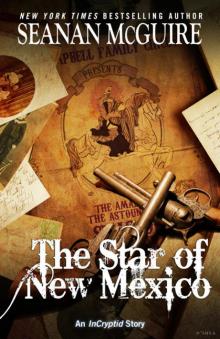 The Star of New Mexico
The Star of New Mexico Lay of the Land
Lay of the Land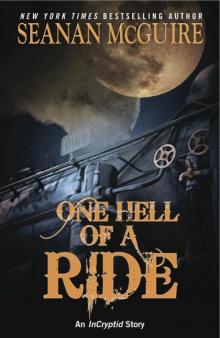 One Hell of a Ride
One Hell of a Ride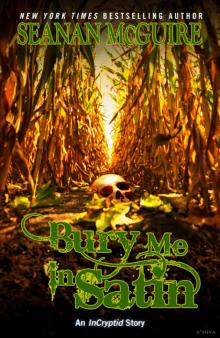 Bury Me in Satin
Bury Me in Satin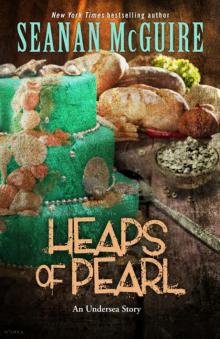 Heaps of Pearl
Heaps of Pearl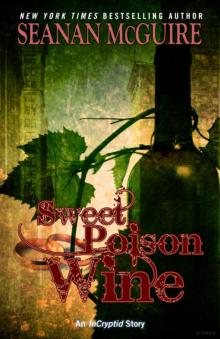 Sweet Poison Wine
Sweet Poison Wine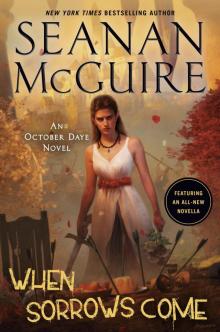 When Sorrows Come
When Sorrows Come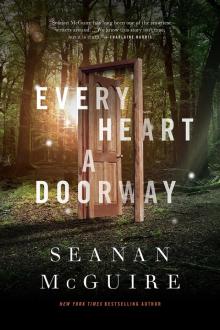 Every Heart a Doorway
Every Heart a Doorway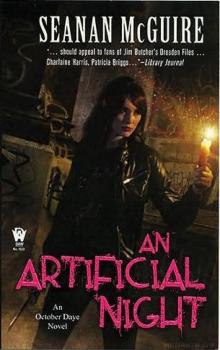 An Artificial Night - BK 3
An Artificial Night - BK 3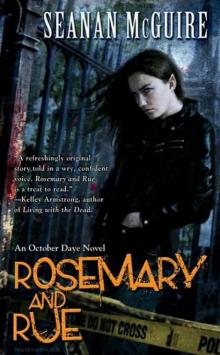 Rosemary and Rue
Rosemary and Rue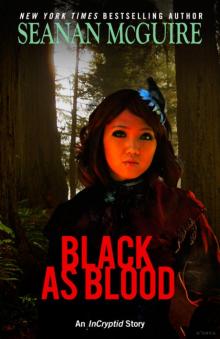 Black as Blood
Black as Blood Loch and Key
Loch and Key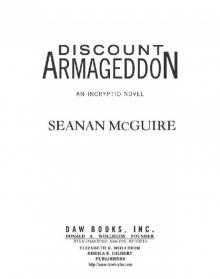 Discount Armageddon: An Incryptid Novel
Discount Armageddon: An Incryptid Novel The Unkindest Tide
The Unkindest Tide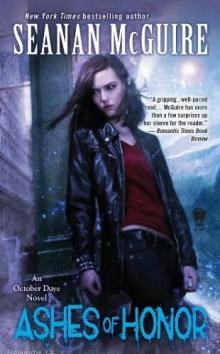 Ashes of Honor od-6
Ashes of Honor od-6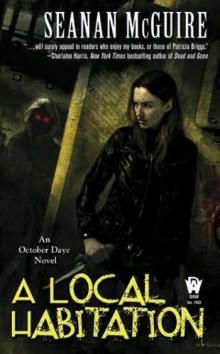 A Local Habitation od-2
A Local Habitation od-2 Waking Up in Vegas
Waking Up in Vegas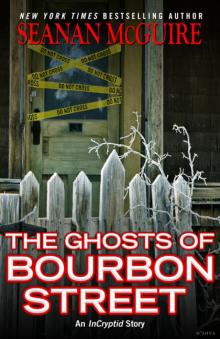 The Ghosts of Bourbon Street
The Ghosts of Bourbon Street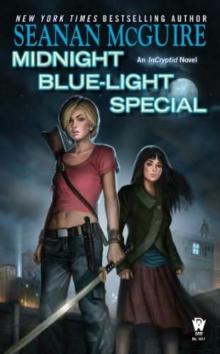 Midnight Blue-Light Special i-2
Midnight Blue-Light Special i-2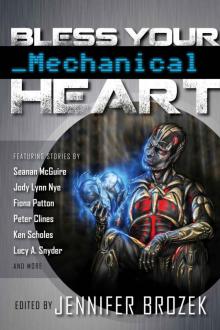 Bless Your Mechanical Heart
Bless Your Mechanical Heart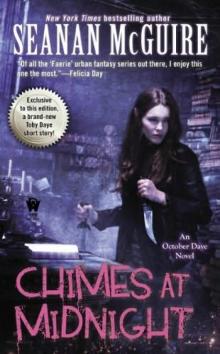 Chimes at Midnight od-7
Chimes at Midnight od-7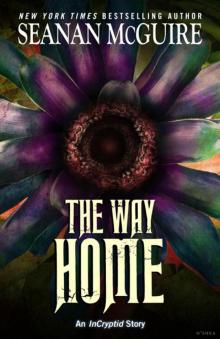 The Way Home
The Way Home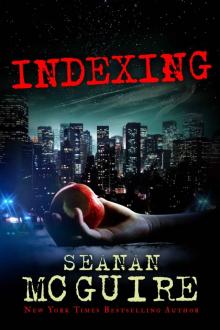 Indexing (Kindle Serial)
Indexing (Kindle Serial)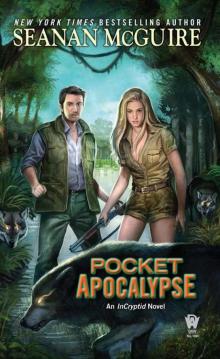 Pocket Apocalypse: InCryptid, Book Four
Pocket Apocalypse: InCryptid, Book Four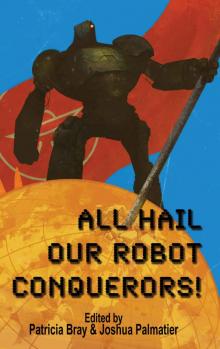 All Hail Our Robot Conquerors!
All Hail Our Robot Conquerors!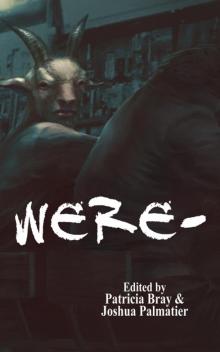 Were-
Were-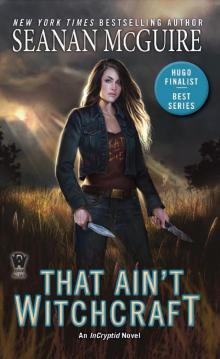 That Ain't Witchcraft (InCryptid #8)
That Ain't Witchcraft (InCryptid #8)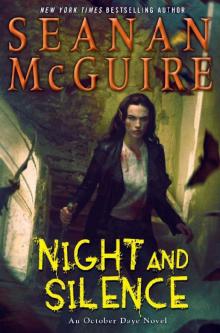 Night and Silence (October Daye)
Night and Silence (October Daye)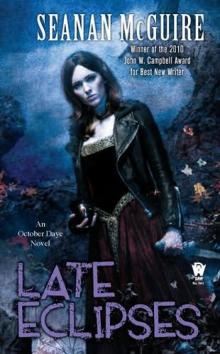 Late Eclipses od-4
Late Eclipses od-4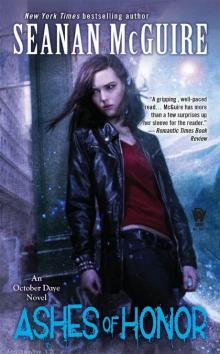 Ashes of Honor: An October Daye Novel
Ashes of Honor: An October Daye Novel Midway Relics and Dying Breeds: A Tor.Com Original
Midway Relics and Dying Breeds: A Tor.Com Original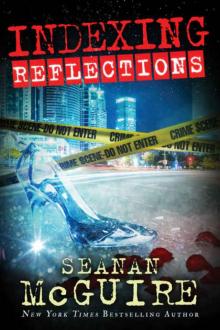 Indexing: Reflections (Kindle Serials) (Indexing Series Book 2)
Indexing: Reflections (Kindle Serials) (Indexing Series Book 2)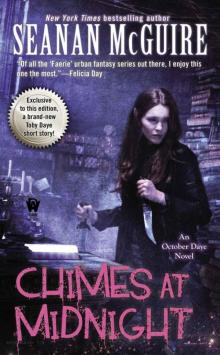 Chimes at Midnight: An October Daye Novel
Chimes at Midnight: An October Daye Novel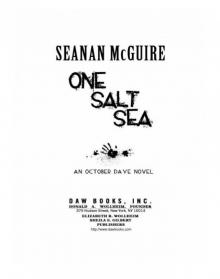 One Salt Sea: An October Daye Novel
One Salt Sea: An October Daye Novel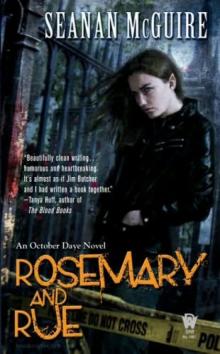 Rosemary and Rue od-1
Rosemary and Rue od-1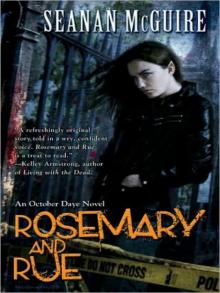 Rosemary and Rue: An October Daye Novel
Rosemary and Rue: An October Daye Novel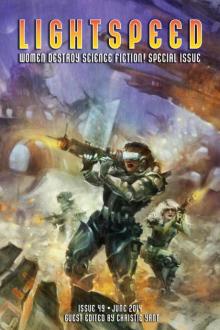 Lightspeed Magazine Issue 49
Lightspeed Magazine Issue 49 Alien Artifacts
Alien Artifacts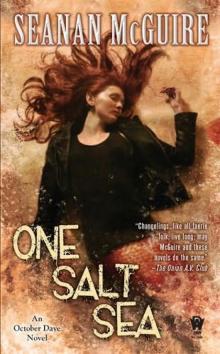 One Salt Sea od-5
One Salt Sea od-5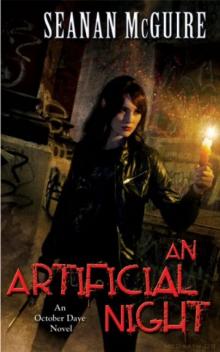 An Artificial Night od-3
An Artificial Night od-3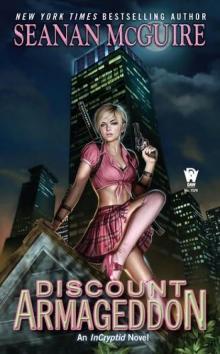 Discount Armageddon i-1
Discount Armageddon i-1